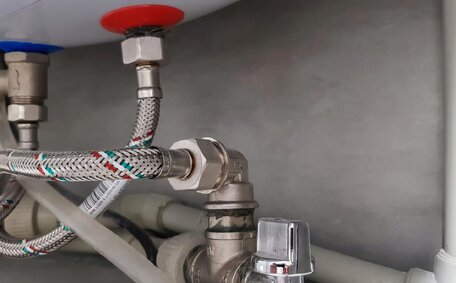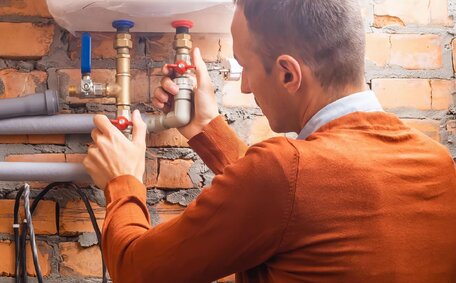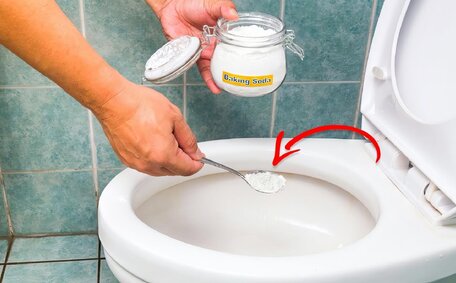Understanding Blocked Drains
A blocked drain occurs when there is a partial or complete blockage in a drain or sewer line, preventing wastewater from properly flowing out of a home or building. Ignoring a blocked drain can lead to water backing up into sinks, tubs, or toilets, causing floods in your house and resulting in sewage overflows and highly unpleasant odours.
This can happen due to a buildup of waste, grease, hair, or other debris over time.
Households and businesses across New South Wales commonly experience blocked drains due to various local factors. Factors like tree roots growing into pipes, ageing sewer infrastructure, and improper disposal of fats/oils contribute to local drainage problems. As Sydney’s population increases, so too does strain on urban plumbing systems.
Dealing with a blocked drain promptly is crucial to preventing water damage and effectively managing the clog. You can pre-emptively avoid blockages with routine drain maintenance and careful waste disposal.
Causes of Blocked Drains
Frequent contributors to blocked drains include:
- Cooking oils, fats and grease - Allowing fats, oils and grease to cool and solidify in drains can create clogs over time.
- Hair buildup - Hair washing and grooming routines lead to hair going down bathroom drains, which can accumulate.
- Tree roots - Roots from trees and shrubs can work their way into pipes.
- Dirty pipe interiors - Waste, soap residue, and minerals can stick to pipe walls.
- Tampons, wet wipes & hygiene products - These do not break down easily and shouldn’t be flushed.
- Toys, silverware, tools - Inappropriate items get washed down sinks or toilets.
Hair from daily grooming routines can cause clogs, so it’s beneficial to use hair traps as a preventive measure. Always remember that only the 3 Ps should go into toilets - pee, poo and (toilet) paper.
Signs You Have a Blocked Drain
There are several telltale signs indicating you may have a blocked drain:
- Water pooling around drains or backing up into sinks/tubs
- Gurgling sounds from pipes
- Sink/tub water draining slower than usual
- Toilets flushing sluggishly or not draining fully
- Sewage odours around drain sites
- Multiple plumbing fixtures affected (it’s widespread)
- Cracked/damaged drainage piping
A slow flow of water in one fixture suggests a localised clog in that specific sink, tub, or toilet. However, A larger blocked sewer line can lead to widespread backup and gurgling, indicating a more serious problem. Observe if water overflows then drains slowly or not at all, as this could indicate a complete blockage.
Preventing Blocked Drains
There are several easy habits homeowners can adopt to help avoid blocked drains:
- Employ sink strainers and covers when washing items to catch food scraps and hair, preventing a blocked sink.
- Collect cooking oil/grease in containers and dispose in the rubbish; wipe fatty residues off pans before washing.
- Refrain from disposing of harsh chemicals or medications down the drain.
- Only flush toilet paper and human waste - no wipes, tampons or other items.
- Use a steady flow of water when operating the garbage disposal to effectively flush waste through the drain.
- Pour washing machine discharge hoses into laundry tubs, not standpipes.
Our technicians can assess your plumbing for issues, clear any small clogs preemptively, and advise on necessary repairs or upgrades to support drainage.
Taking preventive measures will help minimise drain blockages down the track. But should you face an emergency at our place, contact North Epping Plumbing for round-the-clock assistance - we’re well-equipped to handle even the most stubborn clogs with speed and efficiency.
Proper Waste Disposal
Properly disposing of waste in your kitchen sink is crucial for preventing blocked drains. This is especially important in kitchens and bathrooms where food scraps, oils, hairs, and other debris can build up.
In kitchens, scrape and wipe off food scraps and grease from dishes before rinsing to prevent blockages. Avoid putting food waste directly down sinks.
Dispose of cooking oil and grease in the bin, not down the drain, to avert clogs. Over time, grease accumulates on pipe walls and leads to clogs.
Remove built up hair regularly and dispose in the bin. Consider periodic professional drain cleaning as an added preventive measure against hair-related clogs.
Toilets should only be used for human waste and toilet paper; all other items must be disposed of separately. Never flush hygiene products, disposable wipes, dental floss, medications or other trash as these items can easily get stuck and cause obstructions.
Conscious waste disposal and the use of screens and strainers can greatly reduce the incidence of blockages.
Routine Maintenance
There are simple, routine drain maintenance steps homeowners can adopt to help avoid blockages:
- Pour boiling water down drains weekly to dissolve grease and clear debris, helping prevent blockages.
- Every couple of months, use a plastic drain snake to extract hair and debris that bypass sink strainers.
- Flush toilets 2-3 times rapidly to clear any nearing clogs or waste sticking to bowl sides.
- Pour 1⁄2 cup baking soda and 1⁄2 cup white vinegar down drains monthly, waiting 10 minutes before rinsing with hot water.
- Replace old steel piping with smooth plastic piping less prone to snagging debris.
Scheduling annual professional drain inspections is advisable to maintain clear pipes. Our licenced technicians can conduct comprehensive leak detection and evaluate pipes for any potential and other plumbing issues using CCTV technology, address emerging clogs, and provide guidance on sections needing repair or upgrades.
In the event of blocked drains, contact our emergency response team for immediate assistance.
Responding to Blocked Drain Emergencies
In a blocked drain emergency, act quickly and calmly to resolve the situation:
- If water is overflowing from fixtures, turn off main shut-off valves controlling water supply to the affected areas of plumbing.
- Check if the blockage seems localised to one fixture or widespread by running multiple taps. Widespread backups indicate main line clogs.
- Use a plunger over the drain for several minutes, repeatedly plunging to apply extra force to dislodge clogs.
- Pour hot water down the drain while plunging to help dissolve some obstructions.
- Homemade solutions such as baking soda and vinegar may loosen clogs; avoid repeated chemical use if ineffective.
- Turn on taps to relieve pressure.
- Mop up excess water and remove soaked carpets/furnishings to aid drying and prevent mould.
If DIY solutions are ineffective, don’t hesitate to call emergency plumbers from North Epping on 1300 349 338 for prompt assistance.
Immediate Damage Control
Once a blocked drain is discovered, it’s crucial to act fast and mitigate any flooding or water damage until professional help can arrive. Here are key steps to control an emergency:
- Place buckets, towels and other absorbent materials around affected drains or pipes to catch overflow. Wear rubber gloves for health safety.
- Turn off main water shut-off valves if sinks/tubs are overflowing, leaving taps on to relieve pressure. This will limit water entering the blockage.
- Use a rubber plunger over every affected drain for several minutes, plunged deeply to dislodge clogs. Apply petroleum jelly to improve suction.
- In case of toilet overflow, turn off the stop valve behind the bowl to cut off the water supply.
- Open taps nearest the blockage to vent wastewater downstream, reducing backup flooding internally. Divert it safely away if possible.
- Remove water-logged carpets, furnishings and personal items to aid drying once flooding is controlled. This curbs mould risks.
Harsh drain cleaners should be avoided as they can worsen pipe damage. Priority is stopping water flow until our North Epping 24/7 emergency teams arrive to properly clear the blockage and assess repairs.
DIY Drain Unblocking Solutions
When faced with a blocked drain, there are a few homemade solutions you can try before calling a professional:
- Use a plunger - Place it firmly over the drain and pump vigorously to shift the blockage and get the water down the drain.
- Try a drain snake - Use a plastic drain snake to manually remove hair and debris from pipes.
- Pour boiling water - Boil a full kettle and pour slowly down the drain to dissolve grease obstructions.
- Use a wire coat hanger - Straighten out the hanger and bend a small hook on one end to manually fish out hair and waste.
- Baking soda and vinegar - Mix 1⁄2 cup baking soda with 1⁄2 cup vinegar and pour down drain. Allow to sit 10 minutes before rinsing.
Should persistent water backup occur after these methods, stop using the drain and call a professional plumber promptly. We have the high-powered equipment to clear even severe clogs quickly and properly inspect drains.
While effective for minor clogs, our experience shows that DIY solutions won’t tackle underlying plumbing complexities. A thorough know how in evaluation is needed to check the condition of piping, integrity of joints, presence of roots, or fractures. In our experience, our technicians can video inspect drains and determine necessary repairs for long-term prevention of blockages.
When to Call a Professional Plumber
There are certain plumbing situations that require contacting a licenced professional right away, including:
- Main sewer line clogs - Major blockages affecting the entire home’s plumbing system need specialised drain snaking equipment and possible sewer video inspections.
- Leaking water or gas hot water pipes - These issues present flooding risks and potential electrical/fire hazards from contact with wiring. A gas leak can also pose dangerous inhalation risks and carbon monoxide buildup indoors.
- Low water pressure or slowing drains affecting multiple fixtures - Usually signals issues in supply lines or main drains that need repair.
- A blocked toilet or drain with water pooled on floors necessitates significant water extraction and drying efforts to fix ensuing damage.
- Major fixture rupture or detachment - An expert evaluation is needed to ensure repairs meet building codes.
In emergencies such as burst pipes or gas leaks, qualified technicians are dispatched promptly for swift, professional action. I was elated with the experts who gave me assurance with their comprehensive toolkit geared towards a safe assessment and successful repair.
Questions to Ask Your Plumber
When engaging a plumber, it’s critical to probe deeply to ensure they are qualified and come out as a perfect match for your plumbing needs. Here are some important questions customers should consider asking:
- Are you licenced and insured?
- Do you guarantee your workmanship? If so, for how long?
- Can you provide upfront quotes and cost estimates?
- What are your rates and do you charge for travel time/emergency callouts?
- When can you start and how long will the job take?
- Can you offer a preventive maintenance service plan?
- What specialist drain cleaning equipment do you utilise?
- Will you provide a written invoice outlining parts, labour and callout fees?
We encourage readers to consult an emergency plumber soon, like North Epping Plumbing at 1300 349 338 for expert advice on any residential or commercial plumbing concerns. As trusted, licenced experts operating locally in the North Epping area for over 10 years, we are committed to outstanding service and workmanship.
Long-term Maintenance for Clear Drains
Preventing blocked drains requires diligent, long-term maintenance when it comes to your plumbing system. We recommend homeowners schedule professional drain inspections by a licenced plumber every 1-2 years. Over time, small obstructions can accumulate into more severe clogs.
The team at North Epping Plumbing offers extensive drain health checks using specialised CCTV cameras to video inspect conditions within pipe interiors. We can clear any debris or buildup early, before it escalates into backed-up water and flooding.
Take a preventive approach for peace of mind plumbing. Contact North Epping Plumbing on 1300 349 338 to book your maintenance drain inspection today. Investing in regular pipe cleans will help avoid emergency blockages down the track.






